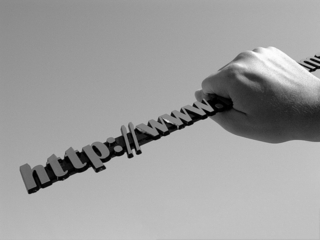Importance of URL Slugs Tutorial
URL slugs are the exact address of a specific website. It is the location where webpages are accessed when typing their URL in the address bar. Optimizing URL slugs is not a very hard thing to do. But if you ask me, it is one of the most important things you can do in your on site optimization process. This is a Tutorial for URL Slugs.
URL Slugs Appear in the Search engine Results Page
If you didn’t know, the URL slugs that you use in your webpage will appear in the SERPs. This is visible to all people who are searching in the web. For this example, I have searched for the keyphrase ‘Title Tag Optimization’. The URL slug in the picture says /title-tag-optimization-guide/ which is good. People who see this result would say ‘Bingo’.
But what if my URL slug says /how-to-properly-give-your-dog-a-name/ then it starts to confuse searchers. It just doesn’t add up.
Some people just don’t get it. Sometimes they write out their URL slugs to be https://www.example.com/10395embislgm-potllz1.php
It’s just gibberish – both for people and consequently for search engines too – because search engines are just mimicking as to how people respond to search query results.
Tip 1: Write your URL for people
URL Slugs are Important for Indexing
 Search engine indexing is the first and vital step in a search engine’s three main functions. A search engine spider crawls every page of a website and stores each page’s data in its database. A webpage’s URL is always included in the indexing stage to identify all the attributes of a webpage. Just try a crawling tool like Xenu or Screaming Frog and you’ll be more familiar with what I’m talking about.
Search engine indexing is the first and vital step in a search engine’s three main functions. A search engine spider crawls every page of a website and stores each page’s data in its database. A webpage’s URL is always included in the indexing stage to identify all the attributes of a webpage. Just try a crawling tool like Xenu or Screaming Frog and you’ll be more familiar with what I’m talking about.
If the URL of each page is indexed by the search engines, then it would be safe to assume that the search engines give attention to the URL slugs – and they do. Which takes us to the next step of a URL slug’s importance.
Tip 2: Write your URL for the Search Engines
URL Slugs are Important for Ranking
The last step in a search engine’s three main functions is ranking its results. And since a URL slug is included in its indexing data, it is most safe to say that a search engine factors in the URL slugs as it ranks the webpage for a certain specific keyword/keyphrase.
A URL slug actually does affect ranking as I’ve tried it out in an experiment. I put in ‘Linkbuilding tutorial’ on the URL slugs but I put in ‘Linkbuilding Strategies’ on the Title of the entry and its Title tag. Guess what? The entry ranked for both keyphrases in its own corresponding area of competition.
My point is, the URL slugs are given importance by the search engines in vital stages in its three-step process which is indexing, retrieval and ranking.
Tip 3: Write your URL to Rank on your Keywords/Keyphrases
All in all, I just want you to be mindful of your URL slugs. It could really be one of the reasons why you’re ranking a bit higher than your competition.
This entry is part of the SEO Hacker School series: Complete On Site Optimization Tutorial

